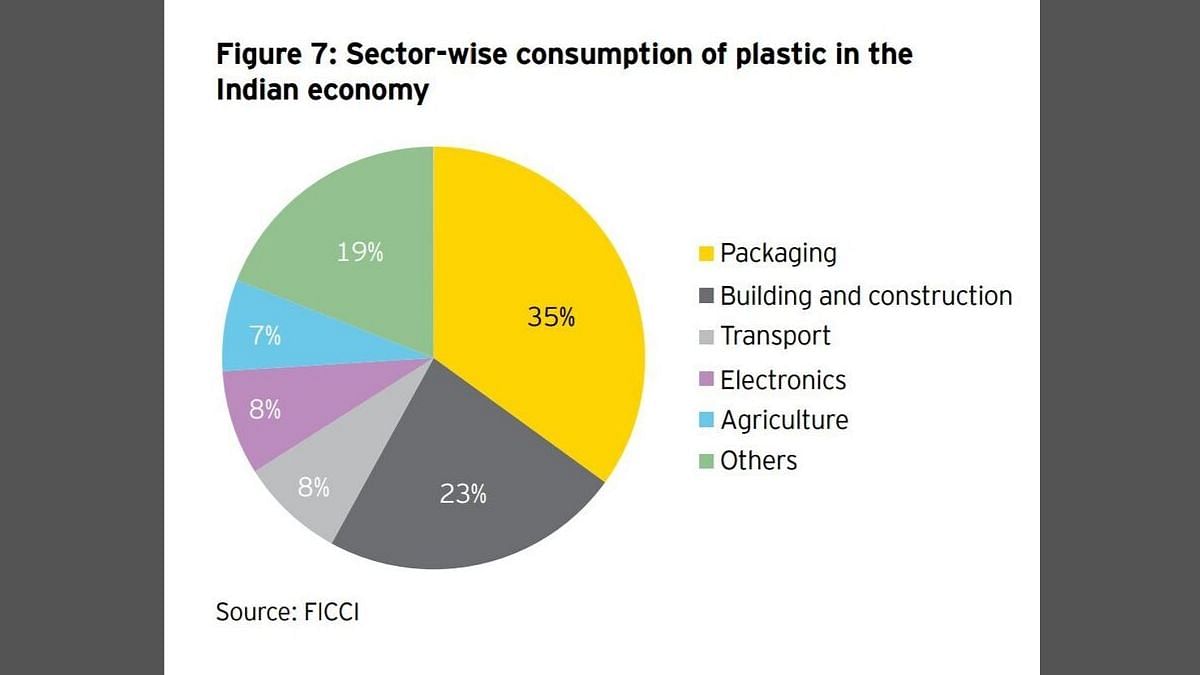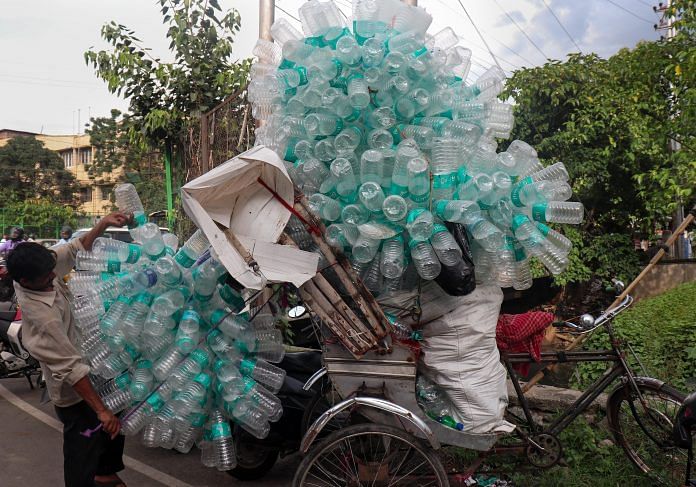New Delhi: The Narendra Modi government has decided against imposing a ban on single-use plastic, less than two months after the prime minister called for a “movement” against its use from the ramparts of the Red Fort.
On 15 August, PM Modi had talked about making India “plastic pollution free”, announcing that a nationwide movement will be started from 2 October, marking the 150th birth anniversary of Mahatma Gandhi, to make the country free from plastic waste.
However, with several crises on the economic front and fears in the plastic industry of job losses due to the proposed ban, the Modi government is not too keen on taking any rushed decision on a blanket ban. A lack of clarity in the definition of single-use plastic has also affected its decision.
Now, instead of bringing in a clear policy, it is appealing to the people to become part of a public movement against it.
“There is no new ban order being issued,” said a Reuters report quoting Environment Secretary Chandra Kishore Mishra. “Now, it’s a question of telling people about the ill-effects of plastic, of collecting and sending for recycling so people don’t litter.”
The government will also ask states to enforce existing rules against storing, manufacturing and using some single-use plastic products such as polythene bags and styrofoam, said the report.
Speaking to ThePrint, a senior official of the Central Pollution Control Board said, “The officials spoke to many organisations and people related to the plastic industry, apart from representatives of big industries. Their suggestions have been sought. Consultations are also ongoing on how to implement this (movement against single-use plastic) on a comprehensive scale.
“Any decision which will be taken will keep all these views in mind. At the moment, the government plans to request people to minimise single use plastic consumption,” added the official who didn’t wish to be named.
Job losses
Experts and people related to the plastic industry feared severe job losses in the industry due to the proposed ban.
Hiten Bheda, former president of the All India Plastic Manufacturers Association, told ThePrint that there are over 50,000 plastic manufacturing industrial units functional in the country currently, providing employment opportunities to 4 to 5 million people.
According to him, a blanket ban on single-use plastic could lead to closure of about 10,000 industrial units and over half a million people would be out of jobs.
Bheda added that the government has realised that there is no clear-cut policy to implement this kind of ban — especially because the government hasn’t even defined what single-use plastic is.
Also read: 11 lakh jobs will be generated due to Ayushman Bharat in 5-7 years, says PM Modi
No definition of single-use plastic
Swati Singh Samyal, who is associated with Centre for Science and Environment, told ThePrint that the government has no ‘definition’ for single-use plastic.
“We have no guidelines regarding its usage and there is no concrete plan as to how its usage can be stopped,” said Samyal. She added there is no proper ground work done by the government regarding the ban it earlier wanted to impose.
There are three elementary steps for successfully banning plastic products, said Samyal. The government first needs to prepare a list of items that cannot be recycled. It must then ascertain what available alternatives can be provided for them. Only if these items are readily available should the ban be implemented. Otherwise, the industry must be provided a “transition period”.
However, according to Swati, around 15 to 16 lakh people are directly or indirectly associated with the plastic industry. There are nearly 3,500 units in the organised sector while another 4,000 units are in the unorganised sector.

Need for clarity on policy move
Stakeholders in the plastic industry have been also holding meetings with the Modi government seeking clarity in its policy on single-use plastic.
Divya Tiwari, chief executive officer of Saahas, an NGO in the waste management sector, told ThePrint, “We had a meeting with the Central Pollution Control Board regarding the single-use plastic ban.”
The NGO recommended banning straws, disposable cutlery, plastic sticks used in balloons, cigarette butts, thermocol, plastic bottles containing less than 200 ml, disposable cutlery, wrapping films, thin bags and street banners.
“Our demand is that the government should promptly come up with a clear cut policy towards implementation of plastic ban and then it should be carried out in a phased manner,” said Tiwari.
“This will also help the industry in understanding its impact and then they might be able to accept it. Yes it is true that today plastic is a big problem, but both we and the Government must take some steps to end it.”
Also read: Modi, back from US, says will make India ‘useful to the world’




Instead of a ban they should start taxing it gradually. Start with 10% and then the usage will fall gradually. People will have time to adjust.